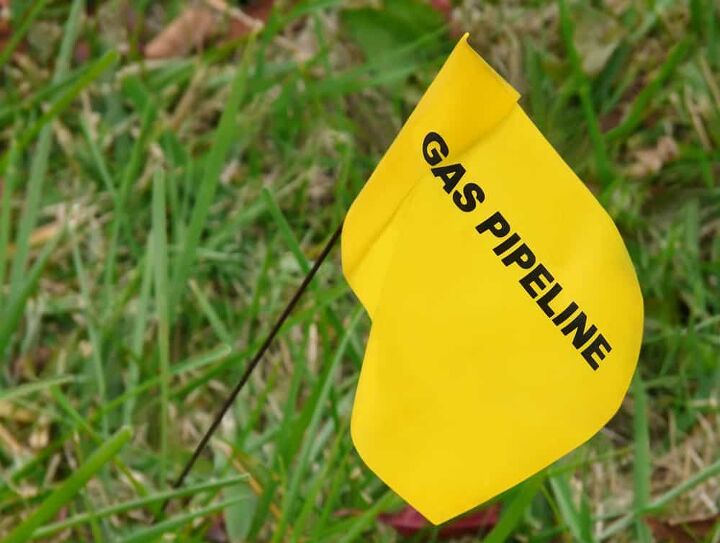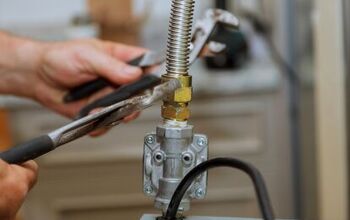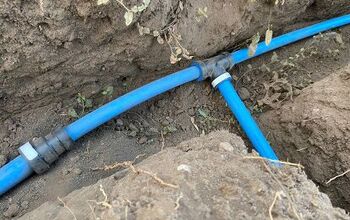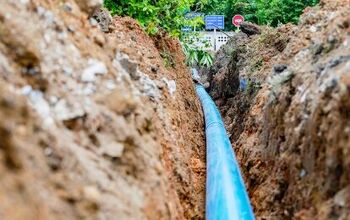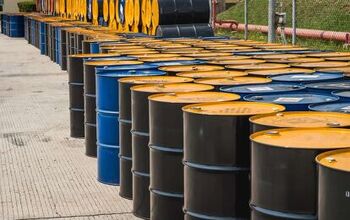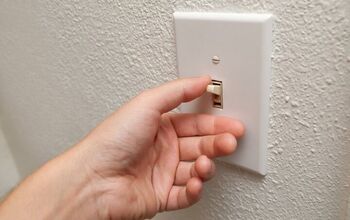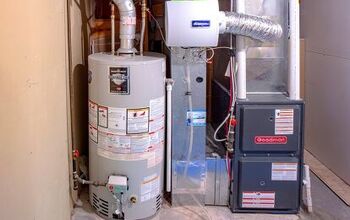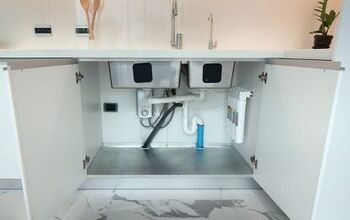How Deep Are Gas Lines Buried? (Find Out Now!)

When you first buy a home, chances are that you get told that you shouldn’t dig in certain parts of the property. This is because most homes will have gas lines running underneath the property. That’s all well and good, of course, until you need to do upgrades to your home. Then what happens? Well, you will need to find out how deep those lines got buried.
There is no national standard when it comes to the depth that gas lines are buried, which is why it is so crucial to call the authorities before you dig. Some gas lines can be as shallowly laid as six inches beneath the surface, while others may be as deep as several feet in.
Digging holes in your yard may seem like it’s a nonissue, but the truth is that it can be a dangerous endeavor. With the wrong move, you could cause a life-threatening gas leak. This guide will help you stay safe from rather explosive results.
Do You Need Gas Line Installation or Repair?
Get free, zero-commitment quotes from pro contractors near you.

How Deep Can A Gas Line Be Buried?
Here’s the rough part about gas lines: there’s no telling how deep a gas line can be buried. Some are several feet deep, others are almost immediately underneath the surface. It’s a municipal issue, which means that the town (or county, or state) makes the standard when it comes to gas line depth.
Most of the time, the depth of your gas line will be determined by your area’s minimum. In other words, the depth will often be the shallowest that’s allowed in your town or neighborhood. If the state minimum is six inches, but the county minimum is 24, then you should avoid digging 24 inches or deeper.
How Do People Choose The Depth For A Gas Line?
The civil engineers who choose the depths for gas lines have their own methods, but most of them agree that it’s better to dig deeper than keep things on the shallow end. A good rule of thumb is that gas lines tend to be buried deeper the more traffic an area experiences. So, if you live near a freeway, you probably can dig at least two feet deep.
Gas lines are laid out in a way that’s designed to reduce the chances of having a disaster happen due to explosions. They are also there to help distribute gas to homes in the neighborhood. What we’re saying is that it’s a balancing act between cost and safety.
How Do You Find Out Where You Can Dig?
Since finding out where you can dig is a major endeavor, the government created a hotline where you can find out how deep you can dig. The fastest way to find out what underground utilities you have underneath your feet is to call 811. The 811 hotline will direct you about the legal depths you can dig, where you should avoid digging, and more.
It’s suggested that you call 811 prior to starting any project that requires you to dig. This includes projects like installing an in-ground pool, adding a new kitchen, or getting your basement addition on. The requirement to call 811 is there for everyone, including private homeowners and repair crews alike.
If you have a gas line on your property, you might also be able to find out where they are by small flags placed by the utility companies in question.
What Happens If You Dig Through A Gas Line?
If you dig into a gas line and cut it, then you could end up with a gas leak. The gas from the line can easily cause a massive explosion the moment that it gets exposed to a high enough heat, a match, or even an open flame. In the past, there have been cases where car accidents near gas lines have caused underground explosions.
Should you suspect that you may have cut a gas line near your home, stop digging immediately and call 911. This is a serious emergency that can pose a threat to both your home and your neighbors. Do not try to fix it on your own. Depending on how bad the cut is, you could actually put yourself in serious danger trying to fix it.
How Can You Tell If You Hit A Gas Line?
Any time that you feel your shovel hit a rubbery tube, you should hit the pause button on your project. Now is the time to look for signs of a break in the line. You can do this by checking for the following signs:
- There’s a clear cut in the line. If you see the cut in the hose and there’s no water coming out, you have hit a gas line.
- You saw a plume of steam, vapor, or fog that came out of the tube. This doesn’t always happen, but it often does. It almost looks like a cloud spraying out from a hole.
- There is a foul smell that is coming out of the hose. Gas is odorless naturally, but that doesn’t mean that you should expect the gas to be odorless. A gas leak has a distinct smell. The smell, which is often described as sulfuric, is an additive to alert people to a gas leak.
- You hear a hissing or roar. How loud the noise will depend on how badly cut the line is. Like with seeing steam, this isn’t always present. You might need to lean in a little to hear the hiss.
- If there is a lot of pressure in the line, you might also see some ground frosting nearby. Another classic sign? Seeing leaves and other debris blow away. If you put your hand near the supposed hole, you might feel a gentle breeze blowing there.
Who Pays For Gas Line Repairs?
Let’s say that you hit a gas line and you call up the police to alert them. Repairs have to be done, and a company is contracted out. You might be wondering what happens next in terms of payments. The truth is, who pays for the repairs that have to be done to the line can vary greatly depending on the circumstances. Usually, it falls on the shoulders of whoever was digging down there.
This means that if you were the one who dug and you didn’t call ahead to find out where you can dig, you will be legally liable. If you hired someone to dig a basement deeper and they ended up tripping the gas line, then the contractors will be at fault. On the other hand, if you took proper precautions and still hit a line, your homeowner’s insurance might pay for it or the city might be liable.
What Kind Of Fees Come With Broken Gas Lines?
Along with the actual price of repairs that comes with breaking a gas line, there’s another major financial reason to avoid digging in places shovels don’t belong: fines. Every state in the union has a fine for breaking a gas line, especially when the line itself has been marked down. How much you can expect to pay varies wildly, depending on where you live.
The state of Kentucky, for example, has a $4,000 municipal fee for a broken gas line. Meanwhile, in California, a line break can break your bank via a $50,000 fee. (No, that was not a typo.) They really will charge you that much for a broken line in some districts.
Do You Need Gas Line Installation or Repair?
Get free, zero-commitment quotes from pro contractors near you.

Related Questions
How much does it cost to replace a gas line running to the house?
A gas line that needs to be run to the home is not going to be a cheap replacement by any means of the word. The parts and labor alone can cost as much as $3,000 to $7,000 on average. This does not include additional fines placed on the property by the state or county, nor does it include any sort of lawn remediation.
When does homeowner’s insurance cover broken gas lines?
If your home has a fire or explosion as a result of a broken gas line, chances are that your homeowner’s insurance policy will protect you from the damages. The gas line cut itself, on the other hand, is another story. If you cut it or it ends up getting harmed as a result of negligence on your part (such as not calling 811), you won’t be protected by your policy.On the other hand, if the gas line was severed as a result of a protected natural disaster, you don’t have to worry about shelling out money. Homeowners insurance policies are specifically made to cover items that are out of your control. So if you had a mudslide that severed your line, mellow out.
Can a small gas leak harm your health?
Absolutely. Being exposed to too much gas (which is actually not that hard to do) can cause nausea, fatigue, dizziness, and vomiting. In some cases, inhaling excess gas can even lead to death. This is one of many reasons why gas leaks need to be treated as serious dangers. It only takes a small leak to kill.

Ossiana Tepfenhart is an expert writer, focusing on interior design and general home tips. Writing is her life, and it's what she does best. Her interests include art and real estate investments.
More by Ossiana Tepfenhart



